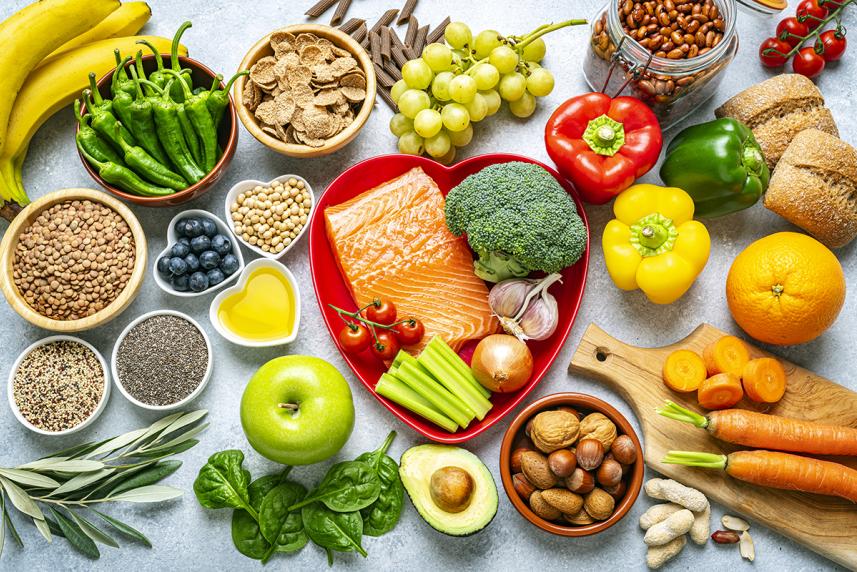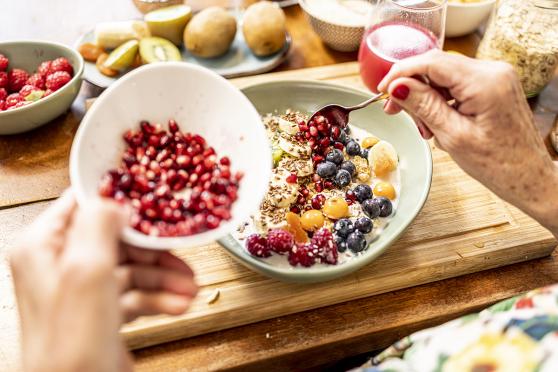The best foods for your heart (and 5 to avoid)
Following a heart-healthy eating plan is easy and tasty, and it can help ward off heart disease.

Even if you haven’t been diagnosed with high blood pressure or high cholesterol, you’re smart to choose foods that are proven to improve heart health.
The DASH diet was designed by experts to help curb high blood pressure. DASH, which stands for Dietary Approaches to Stop Hypertension, emphasizes the foods you can and should eat (like fruits and vegetables, grains, lean protein, and healthy fats), not the foods you shouldn’t. We’ll tell you about those too.
DASH has been shown to lower systolic blood pressure (the upper number) by about 12 points and diastolic pressure (the lower number) by about six points. The eating plan also brings down total cholesterol levels by about 7%. Here’s what to focus on.
The best foods
Fruits and vegetables. They contain heart-healthy fiber and minerals like potassium that help lower blood pressure by lessening the effects of sodium. Try to include at least one serving in every meal and snack.
Grains, preferably whole grains. These major sources of fiber are versatile and filling, and help keep your energy level up. Try whole grains like oatmeal, brown rice, whole-wheat pasta, and quinoa.
Low-fat or nonfat dairy. Milk, yogurt, and cheese are among the best sources of calcium, which helps the body manage blood pressure. They’re also a great source of protein.
Lean protein. Fish, poultry, lean meats, and eggs are good sources of magnesium and protein, which can help lower systolic blood pressure. Keep portions under 4 ounces, about the size of a deck of cards.
Healthy oils. Choose heart-healthy fats like olive oil and avocado oil. When enjoyed in moderation, healthy fats can help lower “bad” cholesterol levels.
Legumes. Beans, chickpeas, lentils, peas, and soybeans are low-fat proteins that can easily be swapped for a meat protein. They not only fill you up (thanks to fiber) but they can help lower blood pressure and blood sugar.
Nuts and seeds. Almonds, peanuts (technically a legume), chia seeds, and pumpkin seeds are just a few choices. Most nuts and seeds have heart-healthy fats that can help lower your risk of heart disease.
Dr. Ramos says: Not all fats are equal! A well-rounded diet includes heart-healthy fats like in avocado, olive oil, and fatty fish like salmon.
5 foods to avoid
Red meat. Red meat, which includes beef, pork, and lamb, is high in fat and increases your risk of heart disease and stroke. Limit red meat and eat poultry, fish, and plant-based proteins instead.
Processed meat. If it has been smoked, salted, cured, canned, or dried — including deli meat, bacon, and sausage — it should be avoided. Foods high in sodium are known to raise blood pressure. Sodium increases your risk of heart disease, especially when combined with fat, such as in processed meat.
Packaged snacks. Most packaged snacks, such as chips, crackers, and cookies, are high in sugar and salt, and are made with trans fats. These foods increase inflammation and cholesterol levels, putting you at risk of heart disease.
Sweets. Sugary drinks, such as soda, juice, and sports drinks, along with sweet treats and desserts (including ice cream and candy), should be limited. Eating or drinking foods high in sugar causes a rise in blood pressure and inflammation, which stresses your heart.
Alcohol. Alcohol in moderation is allowed on the DASH diet (no more than one drink a day for women and two drinks for men). But occasional or no drinking is even better. Drinking alcohol regularly can cause high blood pressure and, over time, may damage heart muscles.


